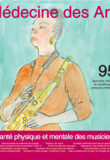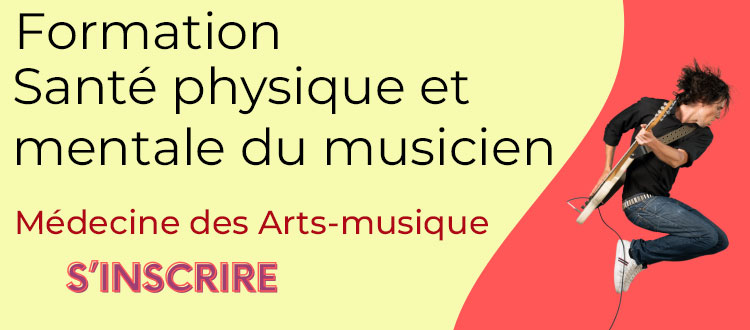Home
-
Performing artists, top cannabis users in all professional activity sectors

Male arts, entertainment and recreation personnel rank first for drunkenness (44.8%) and cannabis use in the year (24.6%). (...)
-
The mysterious beauty of the Mona Lisa, and if it were the symptoms of an illness?

Doctors would like this singular charm, this enigmatic smile to be only the symptom of diseases, which they try to reveal. (...)
-
Over 300 injured at Vigo festival in Spain
(...)
-
Spinal biomechanics questioned by Michael Jackson

The tilting movement of the spine in a Michael Jackson dance figure defies the rules of biomechanics and gravity. Biomechanical explanations plus a trick. (...)
-
Forced vital capacity of trumpet players compared to waterpolo athletes of trumpet players compared to waterpolo athletes

Water polo players and trumpet players have a statistically higher forced vital capacity than a control population. (...)
-
Young female musicians have more stage fright than young male musicians
Performance anxiety can have major repercussions on the musician's practice, and eventually on his future career. (...)
-
The soprano Julia Fuchs removed from her role as Pamina, because she is 4 months pregnant

The soprano Julie Fuchs has been removed from her role as Pamina in the Magic Flute at the Hamburg Opera because she is 4 months pregnant. (...)
-
Alcohol and drugs at festivals aggravate hearing loss

Alcohol, drugs, lack of hearing protection are associated with hearing loss at music festivals. (...)
- « Précédente
- 1
- ...
- 11
- 12
- 13
- 14
- 15
- ...
- 26
- Suivante »
La boutique
Revues

Revue Médecine des Arts N°96 The pianist's health - The dancer's health
17,00 € Accéder à la boutiqueLa boutique
Revues

Revue Médecine des Arts N°95 Physical and mental health of musicians
17,00 € Accéder à la boutiqueLa boutique
La boutique
La boutique
La boutique
Revues











































